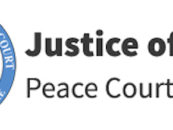According to Connecticut Better Business Bureau, a recently-released government study offers a snapshot of common consumer scams and the number of victims over the course of one year.
A recent report from the Federal Trade Commission (FTC) offers statistical information from a retrospective study looking at 17 types of fraud and its victims in 2011.
RELATED: FTC Returns More Than $6 Million to Consumers Who Bought Infomercial Weight-Loss Book
During the study period, the FTC says an estimated 11 percent of adults in this country – an estimated 25.6 million consumers – lost money because of criminal activity, mostly for products and services.
Hundreds of types of scams have been reported over the past decade, including fake lotteries; inheritance notices; utility impostors; the relative or friend in distress scheme (also known as the Grandparent Scam); illegal marketing calls; phony credit reduction offers; pyramid schemes; investment fraud and phony charity solicitations. The most often-reported type of scam in Connecticut involves calls from Internal Revenue Service (IRS) impostors. The list is extensive, constantly growing and evolving.
Here is a sample of five common ways consumers lose money to criminals, according to the FTC report. (These statistics are estimates)
1. Weight loss supplements – 5.1 million victims
In decades past, weight loss supplements fell into the “snake oil” category. The name alludes to the contents of phony products peddled by hucksters. In 2011, 2.1 percent of consumers ordered useless weight loss pills, powders and potions. Even worse, some of these products are dangerous or have potentially deadly side effects when they are taken with medicines for serious medical problems.
2. Free lunches, trips and other prize promotions – 2.4 million victims
We all would like to get something for free, but almost two and a half million American consumers received only broken promises. In this category, the FTC considered a promotion fraudulent if consumers were told they would receive some sort of gift after making a payment or purchase, or attended a seminar or sales presentation.
3. Buyers’ club memberships – 1.9 million victims
This category involves unauthorized charges or debits for products the victims never ordered. These memberships promised discounts on a variety of items and services. A common example is a travel discount membership.
RELATED: International Fraud, Money Laundering Scheme Involving Sale of Gold
4. Unauthorized billing for internet services – 1.9 million victims
This type of fraud is similar to the buyers’ club membership scam inasmuch as it involves unauthorized charges. The scammers sell website design, hosting and access to the internet. This is a cautionary example of why it is vital to go over bank and credit card statements with a fine tooth comb, and immediately report any unauthorized charges.
5. Work-at-home offers – 1.8 million victims
The salary or commission is enticing and victims are told no experience is required. It sounds like a wonderful opportunity. Unfortunately, as the popularity of work-at-home offers grew, so did the number of fraudulent operations. The FTC considers these programs fraudulent when a consumer pays to get in on the action, but receives only half of the income they were promised. Other work-at-home schemes involve stuffing envelopes or ads for jobs that require expertise, such as medical billing.
The actual number of victims is likely higher than reported in these categories. The sample size of any survey is limited and cannot take into account victims who never reported being scammed.
Are you a victim of fraud or money scam? Share your story with us on the Money Credit and You Facebook page!
Original article published on FOX61.com.
Better Business Bureau urges you to report any attempted or successful fraud throughBBB Scam Tracker, in the “Programs and Services” section at bbb.org/Connecticut. No personal information is published. Scam Tracker also allows you to see the most recent scams in your neighborhood, across the state and the rest of the country.
The best way to protect yourself is by understanding how these scams work, and sharing the information with your family, friends and colleagues.






